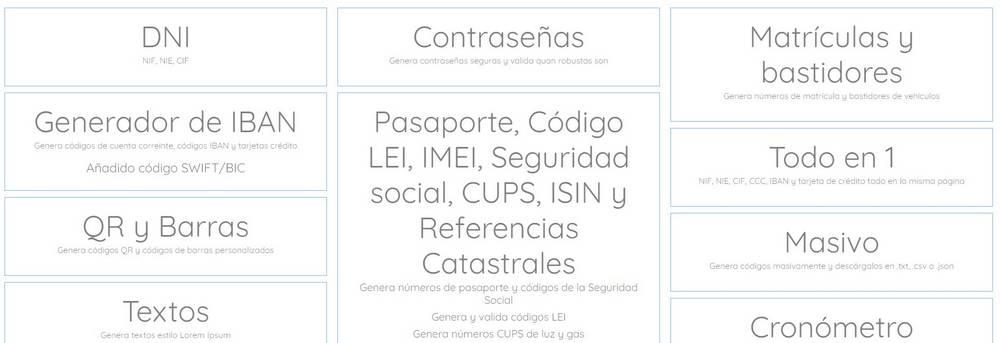The DNI, National Identity Document, is something that, according to its definition, is “personal and non-transferable.” That is to say, it is ours, and no one else would have to know about it, apart from, of course, the State Security Forces and Corps. However, in recent years we have decided to make it available to everyone, even on the Internet, without thinking about the dangers of someone, with bad intentions, deciding to use it for their own benefit.
As long as the Police or Civil Guard asks us for our DNI, we have to provide it to them. There is no other there. It can be physically, or through the number so that they can do the corresponding search. Then, we must also use it whenever we are going to contract banking services, electricity, gas, Internet… but little else. The fewer people who know our ID, the better.
The problems of providing data to third parties
The problem is that, in recent years, we have decided to give away our identification number to anyone who asks for it. Whether it’s a website on the Internet to buy a book, or the Post Office delivery person himself, or Amazon. The best of all is that they just ask us for the number, write it down, and leave. They never check that the number we give is really ours. So what purpose does it have?
A few days ago a news story broke in which a normal citizen reported that Some scammers had impersonated him at the bank and stole all his savings.. And how is it possible? Very easy: they hacked any website where this victim had entered her personal data (name, address, telephone number, ID) and, through social engineering, they impersonated him at the bank to withdraw all the money. This is why the AEPD has become serious and has begun to pursue the indiscriminate use of the DNI, such as making photocopies when, for example, we check-in at a hotel. All these photocopies of the DNI are saved on a server in an unlimited manner. And the question is not whether or not they will use them for other purposes (such as selling them to third parties), but when they will leak through a security breach? Because it will happen, it will happen. The thing is when.
Avoid giving your ID when receiving a package
For some time now, I have no longer provided my ID to anyone. And yes, that has brought me more than one problem that has led to having to mediate with the Police. There have been delivery people who have refused to deliver packages to me, and hotels where they have only let me enter after the National Police arrived to mediate.
But, despite everything, I refuse to let people have access to my ID. Remember that a delivery person, just by bringing a package to your home, already has your name, address and telephone number. The only thing missing is the DNI, which you provide.
To avoid problems, and to keep us all happy, for some time now I have resorted to the technique of using a fake DNI number. The problem is that you can’t just make it up, since the number and letter are generated from an algorithm and, if it doesn’t match, it will give an error. To do this, what I do is use a DNI generator, a tool that generates random and valid identity numbers, so I can enter them on a website or give them to the courier when they leave the package.

Is it illegal, or can it cause problems? No. Illegal is what companies do by asking us for DNI indiscriminately, storing them without respecting the data protection law and selling them to the highest bidder. A crime would be falsifying documents in front of the authorities. But neither hotel receptionists, nor website administrators, nor Post Office or Amazon delivery workers are authorities.
The DNI, only to the Police, Civil Guard or Treasury. For everything else, given the lack of protection from the AEDP and the authorities, you have to find a way to protect yourself. And this is nothing more than another way to survive.













